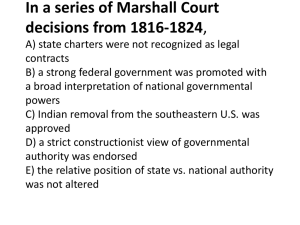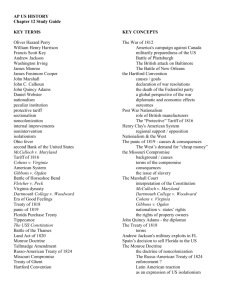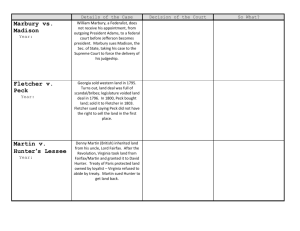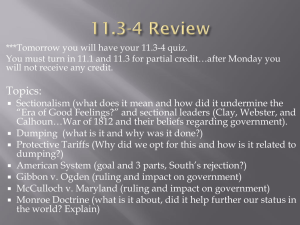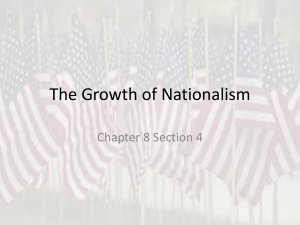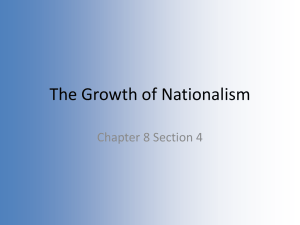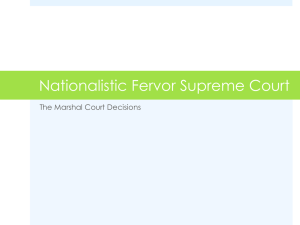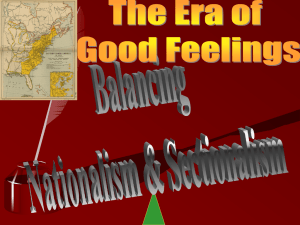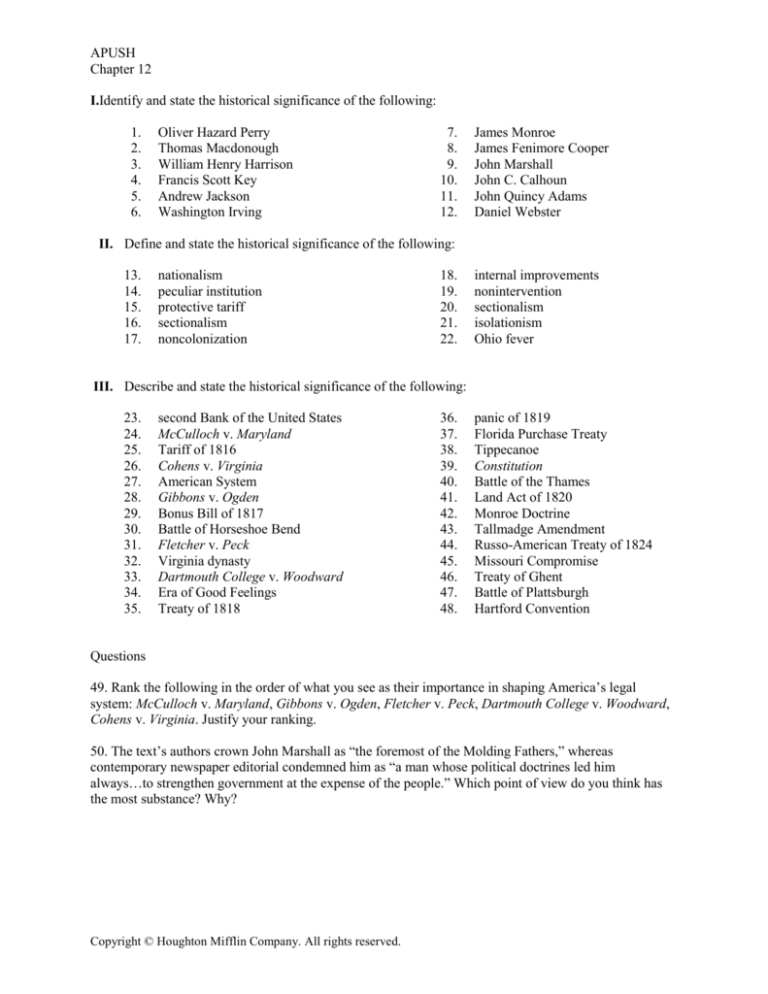
APUSH
Chapter 12
I.Identify and state the historical significance of the following:
1.
2.
3.
4.
5.
6.
Oliver Hazard Perry
Thomas Macdonough
William Henry Harrison
Francis Scott Key
Andrew Jackson
Washington Irving
7.
8.
9.
10.
11.
12.
James Monroe
James Fenimore Cooper
John Marshall
John C. Calhoun
John Quincy Adams
Daniel Webster
II. Define and state the historical significance of the following:
13.
14.
15.
16.
17.
nationalism
peculiar institution
protective tariff
sectionalism
noncolonization
18.
19.
20.
21.
22.
internal improvements
nonintervention
sectionalism
isolationism
Ohio fever
III. Describe and state the historical significance of the following:
23.
24.
25.
26.
27.
28.
29.
30.
31.
32.
33.
34.
35.
second Bank of the United States
McCulloch v. Maryland
Tariff of 1816
Cohens v. Virginia
American System
Gibbons v. Ogden
Bonus Bill of 1817
Battle of Horseshoe Bend
Fletcher v. Peck
Virginia dynasty
Dartmouth College v. Woodward
Era of Good Feelings
Treaty of 1818
36.
37.
38.
39.
40.
41.
42.
43.
44.
45.
46.
47.
48.
panic of 1819
Florida Purchase Treaty
Tippecanoe
Constitution
Battle of the Thames
Land Act of 1820
Monroe Doctrine
Tallmadge Amendment
Russo-American Treaty of 1824
Missouri Compromise
Treaty of Ghent
Battle of Plattsburgh
Hartford Convention
Questions
49. Rank the following in the order of what you see as their importance in shaping America’s legal
system: McCulloch v. Maryland, Gibbons v. Ogden, Fletcher v. Peck, Dartmouth College v. Woodward,
Cohens v. Virginia. Justify your ranking.
50. The text’s authors crown John Marshall as “the foremost of the Molding Fathers,” whereas
contemporary newspaper editorial condemned him as “a man whose political doctrines led him
always…to strengthen government at the expense of the people.” Which point of view do you think has
the most substance? Why?
Copyright © Houghton Mifflin Company. All rights reserved.

